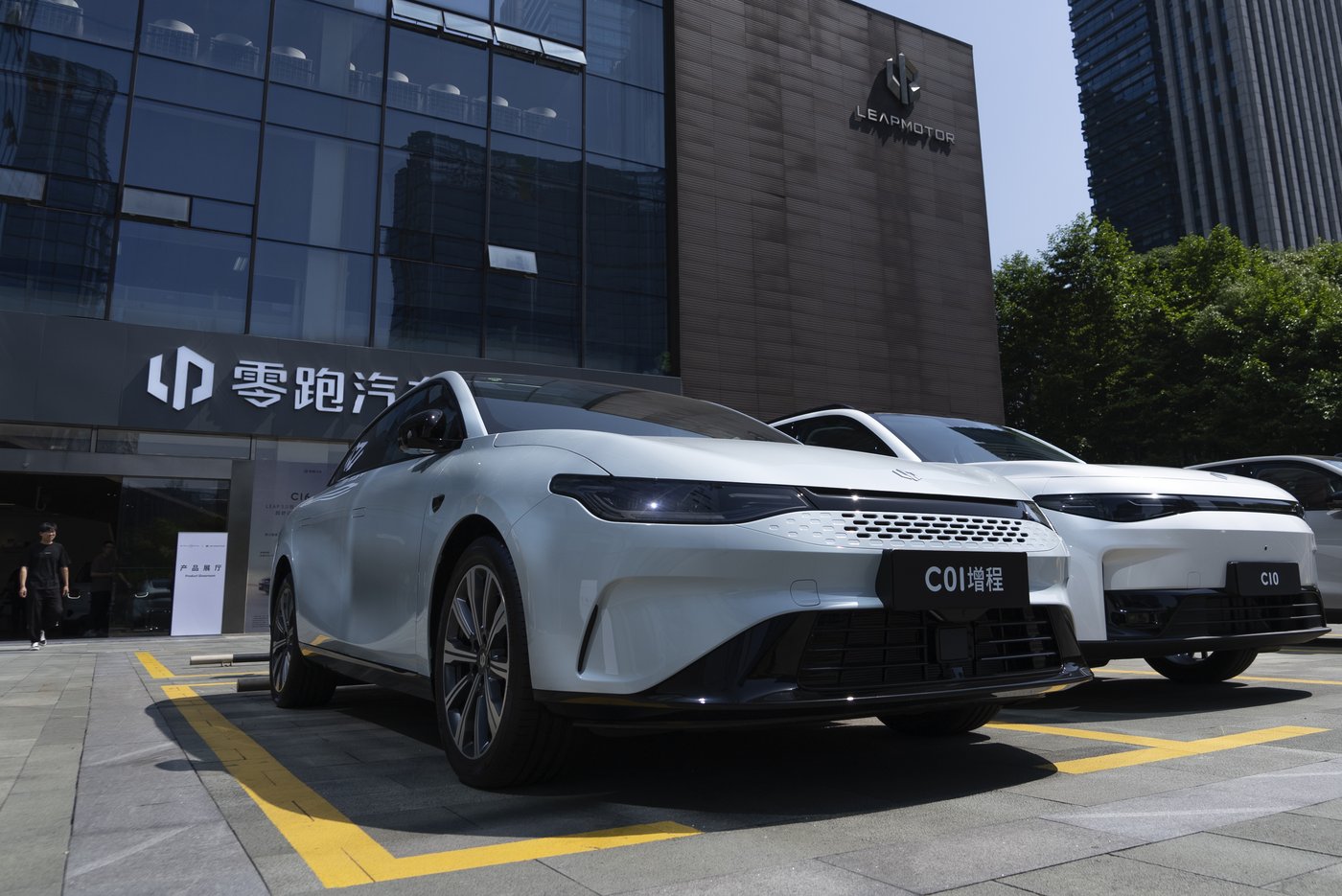Elevate your local knowledge
Sign up for the iNFOnews newsletter today!
Sign up for the iNFOnews newsletter today!
Selecting your primary region ensures you get the stories that matter to you first.

OTTAWA — The federal government says it is reviewing its decision to impose 100 per cent tariffs on Chinese EVs — but it can’t or won’t say when the review began, or when it will end.
The tariffs took effect on Oct. 1, 2024, and the regulatory order published imposing them said “the government intends to review this measure within a period of one year from its entry into force.”
Finance officials now say the review is “informal,” with no specific deadline.
The news comes as Canada tries to recalibrate its trade relationship with China, which imposed heavy tariffs on Canada’s canola sector last month. The move was widely seen as an act of retaliation for Canada’s EV tariffs.
Canada introduced the surtax on Chinese EVs a year ago to match those of the United States. Ottawa accused China of unfairly subsidizing its EV industry and overproducing vehicles to flood markets with cheaper cars.
The Canadian Press began asking about the status of the Chinese EV tariff review two weeks ago, after Prime Minister Mark Carney appeared to confuse it with the newly announced review of the government’s EV sales mandate.
On Sept. 11, a reporter at a press conference asked Carney whether Canada would lower the 100 per cent tariffs, after noting they were currently under review.
“Just to be clear,” Carney replied, “what’s under review — I think you know, but for others — is the EV mandate. We’ve suspended it for 2026 and we’re reviewing that overall approach … in the context of the trade environment.
“That review just started. We’re in the first week of a 60-day review, so I don’t want to prejudice it.”
Carney however was referring to the 60-day review of the EV sales mandate his government launched on Sept. 5, which was a separate issue than the tariffs imposed on Chinese vehicles.
The Prime Minister’s Office deferred questions about the issue to Finance Minister François-Phillippe Champagne. His office told The Canadian Press on Sept. 17 the review hadn’t started yet.
After further inquiries, Champagne’s office changed course and said this week the review had started.
“The review was initiated within the prescribed one year timeline and remains underway,” said press secretary John Fragos. “The government is cognizant of the interest that many stakeholders have in the timely completion of this review.”
Asked when the review began, Fragos said only that it began in early September, though a department spokesperson later said there is no “specific date.”
“There is no specific date, I’m afraid, as this is an informal process (i.e., not a public consultation),” wrote a Department of Finance spokesperson, in a statement to The Canadian Press provided by Champagne’s office.
“But you could say it began this summer. And because it isn’t a formal process per se, there’s no open or close date like with a consultation.”
Officials did say they’re finalizing their advice to Champagne on the EV tariffs, based on what the government heard from stakeholders.
The Canadian auto sector has called for the tariffs to remain in place to protect Canada’s carmakers, while environmental groups have called for them to be lowered or repealed to help boost competition in the EV market.
Last week, Ontario Premier Doug Ford urged the government to keep the tariffs in place in a letter to Carney.
“If the federal government removes its tariffs against Chinese-made EVs, you will contradict and undermine months of engagement with U.S. officials and lawmakers about the need to protect and enhance our highly integrated cross-border automotive supply chains,” Ford wrote.
While the status and the seriousness of the review remains unclear, Canada has prioritized its trade relationship with China over the last several weeks.
Following his trip to China with Saskatchewan Premier Scott Moe earlier this month, Liberal MP Kody Blois said Canadians should expect to see more high-level outreach to Beijing.
“You’re going to see an increased presence of federal ministers visiting China, engaging with their counterparts, and I think there’s ultimately an opportunity for more dialogue on the trade irritants that exist between our two countries,” Blois told reporters last week.
“I would characterize the meetings as positive. It was an opportunity for re-engagement.”
Foreign Affairs Minister Anita Anand is expected to visit China in mid-October, and Carney met with his counterpart Li Qiang while at the United Nations last week. A readout from the Prime Minister’s Office said the two leaders discussed canola and electric vehicles.
“Recently we’ve seen very good signs of engagement between Canada and China. We recognize that as a prerequisite to getting to a solution on the tariff issues,” said Chris Davison, president of the Canola Council of Canada.
Davison did not taking a position on whether the Chinese EV tariffs should stay in place, saying this is a political issue which requires a political solution.
“We’re encouraged by the level of engagement. We anticipate that level of engagement will continue and indeed intensify moving forward. And just want to re-emphasize the urgency attached to that,” he said.
This report by The Canadian Press was first published Sept. 26, 2025
— With files from Dylan Robertson
This site is protected by reCAPTCHA and the Google Privacy Policy and Terms of Service apply.
Want to share your thoughts, add context, or connect with others in your community?
You must be logged in to post a comment.